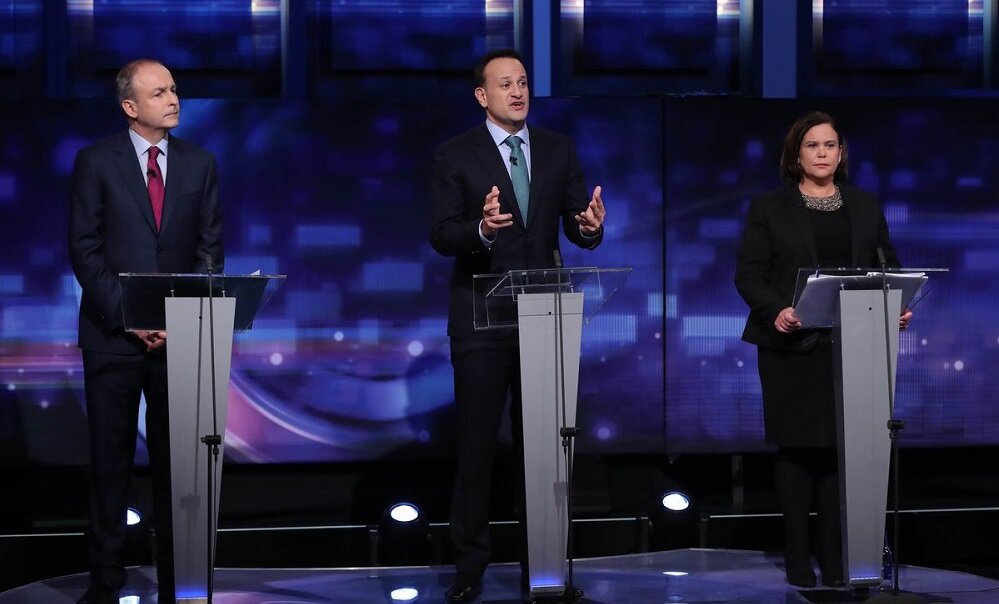Last night’s Prime Time debate was an enormous, career-defining moment for Micheál Martin, Mary Lou McDonald, and Leo Varadkar.
Despite some nerves in the opening minutes, it was clear why each was there to begin with. To communicate to a high standard for almost two hours, under a level of pressure few of us will ever experience, takes rare talent. No matter your political persuasion, all three deserve recognition in this regard.
Polling position influenced debate strategy. For McDonald, once the hunter and now the hunted, it was to keep doing what she’s been doing. For Varadkar, behind on points and running out of rounds, he sought to land a knock-out blow. For Martin, the one most likely to be the next Taoiseach, it was a time to reassure wavering voters.
With only four days to go, each of the three would have be mindful of the fact that as many as 28% of voters have yet to decide how they will vote.
For me, two things stand out: their positioning on ‘change’ and command of details.
Taking change first, Varadkar took a new tack by dialling up his track record, citing a range of changes delivered during his term as Taoiseach. This might play well with the Fine Gael base, but election results the world over always show that people generally vote on what you ‘will’ do rather than what you did.
In contrast, Martin emphasised urgent, immediate action, particularly in health and housing. It was clear throughout that he was seeking to resonate with those who need meaningful change now.

Real change
McDonald consistently, and largely effectively, sought to make clear to voters that Sinn Féin is the only choice for those seeking ‘real change’. She contrasted Sinn Féin’s ambition, new ideas, and energy with the status quo of ‘these two men’, a term used more than once. This will chime with the public mood.
While political anoraks will get excited about McDonald’s obfuscation on the Special Criminal Court question, her most uncomfortable moment arose when she was questioned about remarks made by her senior political colleague, Conor Murphy, on the murder of Paul Quinn. She briefly wobbled. Expect follow-up questions today and a contrite walk of shame from Murphy for the cameras.
The second stand-out for me was the contrasting level of detail displayed. The debate format, and the fact that it was only three leaders with maximum time and minimum cuts to ad breaks, allowed the viewer to get a sense of who had the greatest command of details.
Here, Micheál Martin stood apart, particularly on the economy and health. He displayed experience and relatability. Given Fianna Fáil’s focus on targeting soft Fine Gael voters, returning Fianna Fáil voters, and those considering voting Sinn Féin for the first time, this segment of the debate will have helped.
Varadkar, too, was good on detail, perhaps enjoying his best and certainly most impactful moment of the night when he confronted McDonald on her party’s record on homelessness in Northern Ireland and high taxation.
But in an election about change, feelings matter—particularly the feelings of those who are only now starting to consider how they will vote.

About the author
Founder and Managing Director of PR360, Dan’s career spans business, politics and professional representation. He has overseen the agency’s rapid growth, developing a premier client portfolio and a talented team of professionals.
